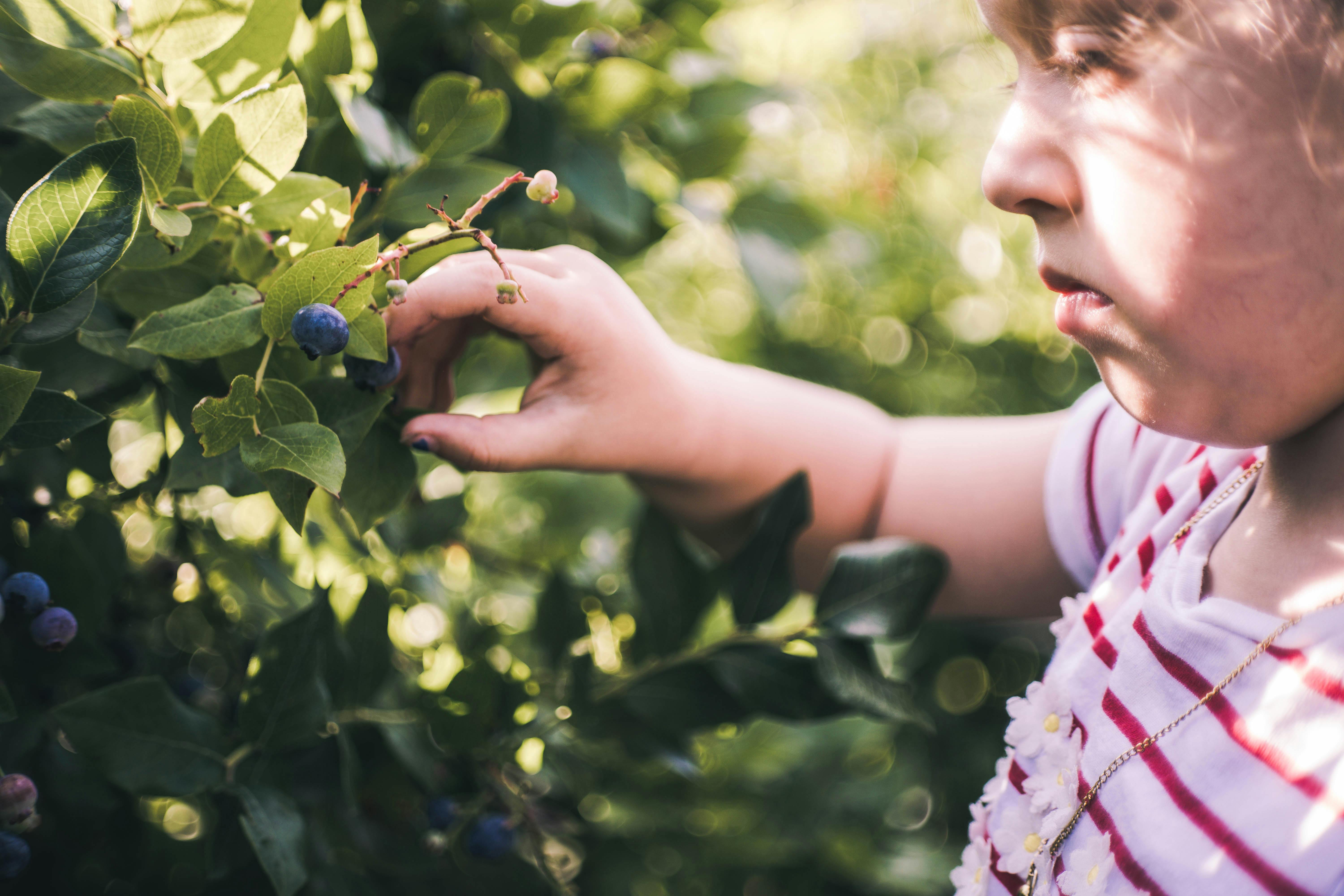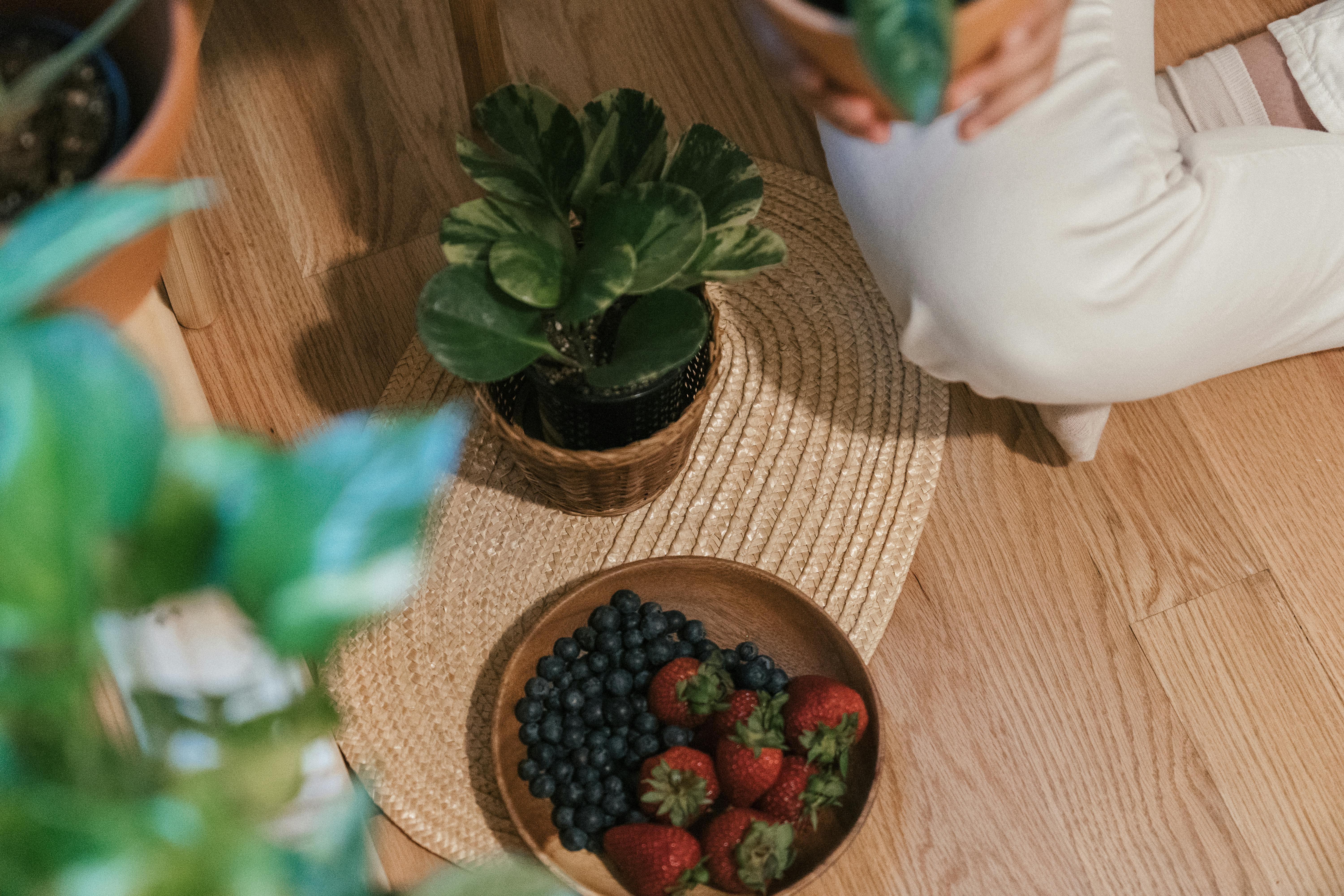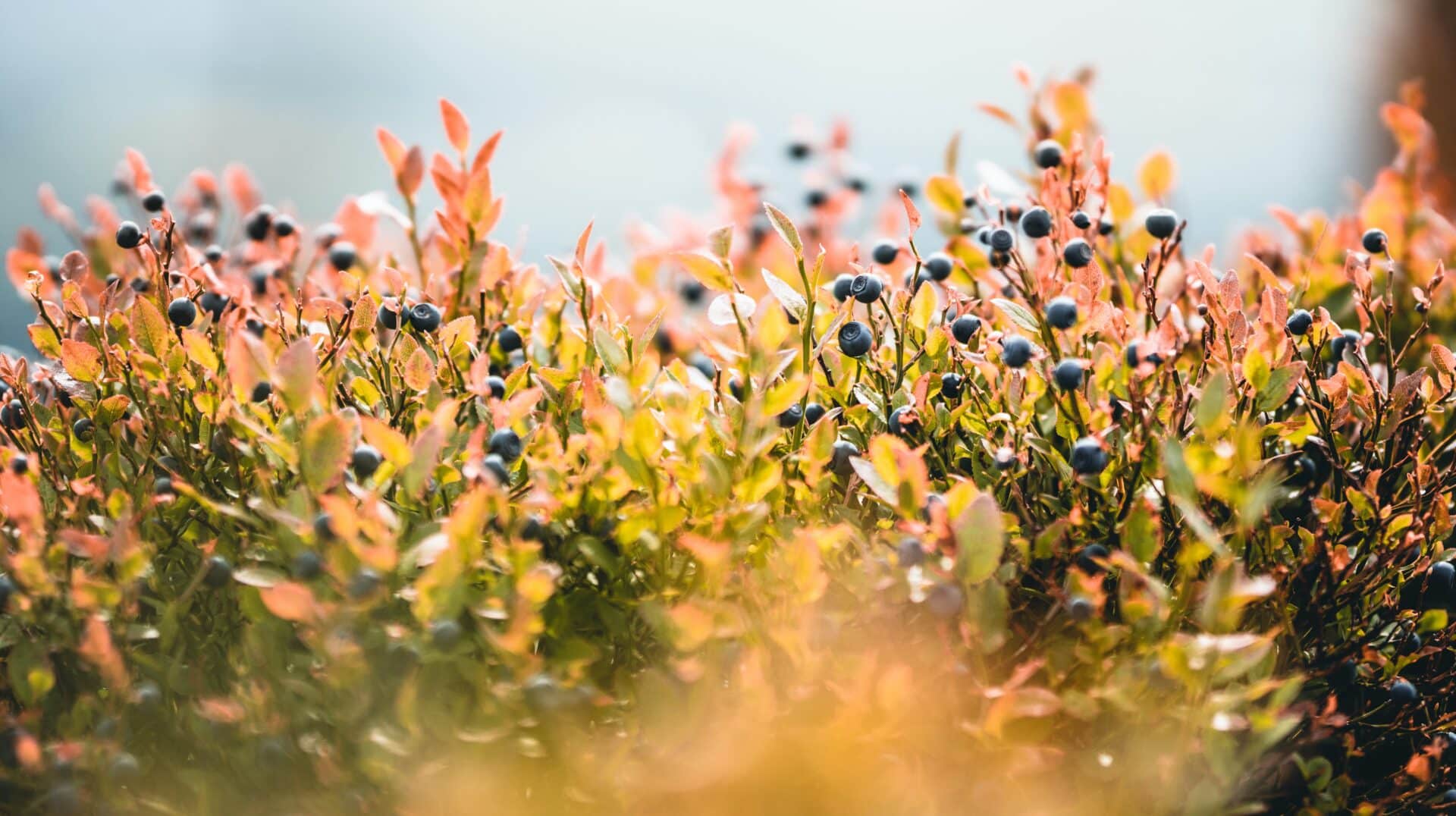Blueberries are a delicious and nutritious fruit that can be enjoyed fresh or used in a variety of recipes. While they make a great addition to any garden, you may be wondering what to plant near blueberries. Planting the right companion plants near blueberries can help promote healthy growth and higher yields. The right companion plants can also provide additional benefits such as pest control, nitrogen-fixing, and improved soil fertility. In this article, we will discuss some of the best plants to grow near blueberries and how they can help enhance your berry patch’s productivity.Some plants that can grow near blueberries include perennials such as lupines, columbines, and bellflowers; annuals like calendulas and zinnias; herbs like chives, oregano, and mint; shrubs like azaleas and rhododendrons; and groundcovers like creeping phlox and vinca.
Best Plants to Grow with Blueberries
Growing blueberries is a great way to enjoy a sweet, healthy snack, but why stop there? Growing other plants alongside your blueberry bushes can help increase the yield and improve the overall health of your blueberry plants. Companion planting means selecting plants that have complementary traits and can help each other in some way. Here are some of the best plants to grow with your blueberry bushes.
Legumes are an excellent choice for companion planting with blueberries. Legumes, such as peas and beans, fix nitrogen into the soil which helps to improve soil fertility. This helps to provide more nutrients available for your blueberry plants. Legumes also provide shade for the shallow roots of the blueberry bush, helping to keep them cool during hot summer days.
Herbs can also be beneficial when grown alongside blueberry bushes. Herbs such as mint and oregano can help repel pests that would otherwise damage your blueberry crop. They also attract beneficial insects like bees and butterflies which can help pollinate your plants and increase fruit production.
Grasses are another great companion plant for blueberries since they can help reduce weeds in the area by competing with them for resources like light and water. Grasses also add organic matter to the soil which improves its fertility and drainage, both important factors for growing healthy blueberries.
Finally, flowering plants like marigolds are great companions for blueberry bushes since they attract pollinators like bees that will help increase fruit production. Marigolds also contain compounds that may help repel certain pests from attacking your blueberries.
By choosing companion plants carefully, you can create an environment that is beneficial for both you and your blueberry bushes!
Planting Other Berries Near Blueberries
Planting other berries near blueberries can be beneficial for many reasons. Growing multiple berry varieties in close proximity can help to increase pollination, reduce pest pressure, and provide a more diverse harvest. Additionally, planting other berry plants near blueberries can provide a visual contrast and aesthetic appeal to your garden or landscape.
When selecting companion plants for blueberries, it is important to choose those that have similar growth requirements. Both blueberries and their companion plants should thrive in acidic soils with a pH of 4.5-5.5, and prefer temperatures between 50-85°F. It is also important to consider the size of these plants when planning your garden layout as some may grow larger than others.
Some good companion plants for blueberries include currants, raspberry, cranberry, elderberry, gooseberry, and huckleberry. Many of these fruits are also perennial in nature which makes them ideal for long-term plantings near blueberries. Additionally, these plants are often resistant to many common pests and diseases that could potentially affect your blueberry plants.
In addition to their edible fruits, some of these companion plants also have attractive foliage or flowers that can add color and texture to your garden space. For instance, raspberry bushes produce beautiful pink blooms in early spring while elderberry bushes produce clusters of white flowers in late spring or early summer.
Overall, planting other berries near your blueberries can be beneficial in a variety of ways including increased pollination potential, reduced pest pressure and aesthetic appeal. To maximize the benefits of this type of planting arrangement make sure to select companion plants with similar growth requirements and consider their size when planning out your garden layout.
Planting Vegetables Near Blueberries
Planting vegetables near blueberries is a great idea for many reasons. Blueberries are packed with antioxidants, vitamins, and minerals that can help to improve the health of your vegetable plants. Additionally, blueberries are known for their ability to attract pollinators, which can help to boost the growth and production of your vegetable plants.
Blueberries are also great at suppressing weeds, which can reduce the amount of time you spend weeding and make it easier to keep your vegetable garden neat and tidy. Finally, blueberries also have the potential to add nitrogen to the soil which can further benefit your vegetables.
When planting vegetables near blueberries it is important to choose varieties that prefer similar growing conditions. Blueberries prefer a pH of 4.5-5.5 so you will want to choose vegetables that can tolerate a slightly acidic soil such as potatoes, spinach, kale, collards, cauliflower, broccoli and cabbage. If possible avoid planting tomatoes near blueberry bushes as they prefer much higher pH levels.
Be sure to leave enough space between your blueberry bushes and vegetable plants so they have room to grow without crowding each other out. Planting too close together can result in competition for resources such as water and sunlight which can stunt the growth of both plants. Additionally you will want to take care not to spread diseases from one plant type to another through improper maintenance or improper watering techniques.
Overall planting vegetables near blueberry bushes is a great way to improve the health of your garden while also reducing weeds and increasing pollinator activity in your garden space. Just be sure that you choose varieties of vegetables that can tolerate slightly acidic soil conditions and provide adequate spacing between plants for optimal growth potential!
Planting Herbs Near Blueberries
Blueberry plants are a great addition to any garden, but they can benefit from the presence of certain herbs. Planting herbs near blueberries helps to attract pollinators, repel pests, and provide additional nutrients for the blueberry plants. By growing herbs alongside blueberries, gardeners can enjoy a richer harvest of blueberries in the summer and fall. Here are some of the best herbs to plant near blueberries:
Lavender is a fragrant herb that attracts pollinators, such as bees and butterflies, to the garden. Its flowers also help to improve soil fertility and repel certain pests, such as aphids. Lavender also has a pleasant aroma that can be enjoyed all summer long.
Mint is another beneficial herb for blueberry gardens. It repels certain pests such as ants and slugs while attracting beneficial insects like lacewings. Mint also helps to improve soil fertility and adds a pleasant aroma to the garden.
Rosemary is an aromatic herb that helps to repel certain pests while attracting beneficial insects like bees and hoverflies. It also improves soil fertility with its deep root system and adds flavor to many dishes.
Thyme is an aromatic herb that helps to repel certain pests while attracting beneficial insects like ladybugs and hoverflies. It also improves soil fertility with its deep root system and adds flavor to many dishes.
Sage is another beneficial herb for blueberry gardens. It repels certain pests such as ants and slugs while attracting beneficial insects like lacewings. Sage also helps to improve soil fertility and adds a pleasant aroma to the garden.
By planting these herbs alongside blueberries, gardeners can enjoy a richer harvest of fruit in the summer and fall months. Not only do these herbs attract pollinators, but they can also help ward off pests and improve soil fertility with their deep root systems and fragrant aromas!

Planting Flowers Near Blueberries
Planting flowers near blueberries can provide a variety of benefits to the health of your plants. Flowers attract beneficial insects that help pollinate and protect blueberries from damaging pests. Additionally, flowers provide extra nitrogen to the soil, which helps blueberry bushes grow larger and healthier. Furthermore, the addition of flowers can add beauty to a garden and provide additional color and texture.
When planting flowers near blueberries, it is important to choose varieties that are compatible. When selecting flowers for your garden, look for those that will bloom at different times throughout the growing season so that there is always something in bloom near your blueberry bushes. Also consider varieties with strong colors, such as reds and blues, as they will attract more pollinators than pale colors such as white or yellow.
It is also important to consider the size of both your blueberry bushes and the flowers you choose to plant nearby. Select plants that fit well within their available space so that they do not crowd out each other or cause shading issues for either plant. If you have limited space in your garden, look for dwarf varieties of both plants or select smaller flowering plants such as petunias or daisies rather than larger flowering shrubs like butterfly bush or rhododendrons.
Finally, make sure to keep the flower beds well-maintained by regularly removing weeds and deadheading spent blooms to encourage new growth. Additionally, be sure to water both sets of plants regularly so that they remain healthy throughout the growing season. With proper care and maintenance, planting flowers near blueberries can help create a beautiful and productive garden!
Companion Planting with Blueberries
Companion planting is an important part of sustainable and organic gardening. It involves choosing plants that can work together to provide the best environment for healthy growth and increased yields. Blueberries are one of the most popular fruits to grow in the home garden, and companion planting can help ensure a bumper crop.
Growing companion plants alongside blueberries can provide a number of benefits. First, some companion plants attract beneficial insects which can help limit problems with pests. Secondly, some plants fix nitrogen in the soil and provide additional nutrients for the blueberry bushes. And finally, there are some plants that can act as ground cover to maintain soil moisture and reduce weed growth.
When choosing companion plants for blueberries, it’s important to select ones that will thrive in similar conditions. Blueberries prefer acidic soils, so look for acid-loving plants such as rhododendrons or azaleas. These shrubs will also help protect the blueberry bushes from harsh winds and hot sun. Other good companions are herbs like oregano, thyme or mint which will also help maintain soil acidity and repel pests.
Legumes such as peas or beans can be grown between rows of blueberry bushes to add nitrogen to the soil (as well as providing a tasty snack!). Low growing herbs like chives, garlic or parsley make an excellent ground cover that will smother weeds without competing with the blueberry bushes for nutrients or water. Finally, there are several flowering plants like marigolds or nasturtiums that will attract beneficial insects while adding colour to your garden.
By carefully selecting companion plants for your blueberry patch you can ensure healthy growth and abundant yields for many years to come!
Mulching Around Blueberries
Mulching around blueberries is an important step in maintaining the health of your blueberry bushes. Mulch is any material that is placed around the base of a plant to help it retain moisture, reduce weeds, and provide nutrients to the soil. The best mulches for blueberries are organic materials such as wood chips, pine needles, grass clippings, shredded leaves, straw, and compost. These materials will help keep the soil around your blueberry bushes moist and cool while also providing essential nutrients to help them thrive.
When applying mulch around your blueberry bushes, make sure to spread it about 2-4 inches deep and at least 6-8 inches away from the base of the plant. This will help ensure that the roots are not smothered or exposed to too much moisture. You should also avoid piling mulch up against stems or branches as this can cause rot or fungal disease issues on your plants. Keep in mind that organic mulches may need to be replenished every year or two depending on how quickly they break down in your climate.
It is also important to note that some mulches can be more beneficial than others for blueberries. For instance, pine needles are acidic and can help lower pH levels in soil which can benefit acid-loving plants like blueberries. In addition, wood chips are great at keeping weeds down and can provide a slow release of nutrients over time as they break down into the soil. Whatever type of mulch you choose for your blueberry bushes, make sure to monitor them throughout the season and replenish them when needed so your plants get all the benefits they need!

Conclusion
The best plants to grow near blueberries are those that provide plenty of shade, act as ground covers, and help control weeds. Examples include hostas, ferns, and vinca. Planting companion plants can also provide additional benefits such as improved soil quality, increased pollinator activity, and natural pest control. When selecting companion plants for blueberries, it is important to select those that will not compete with the blueberries for resources or nutrients.
Overall, planting other types of plants near blueberries can be highly beneficial for both the blueberry bushes and the surrounding environment. By carefully selecting the right companion plants and planting them in a way that maximizes their benefits while minimizing competition with the blueberry bushes, gardeners can create a thriving and diverse ecosystem in their own backyard.
When planning your garden layout near your blueberry bushes, consider all of these points to ensure you choose the best companion plants for your needs. With careful consideration of what to plant near your blueberries, you can create a beautiful garden full of vibrant colors and delicious fruits!



